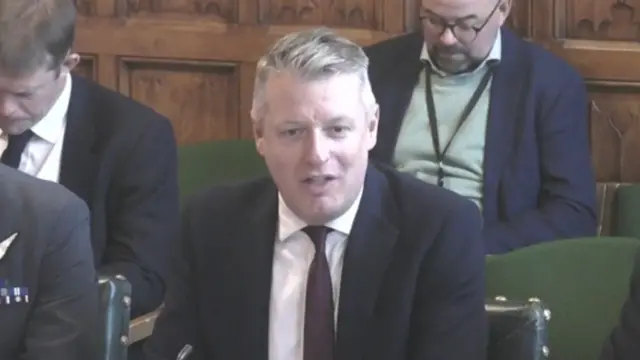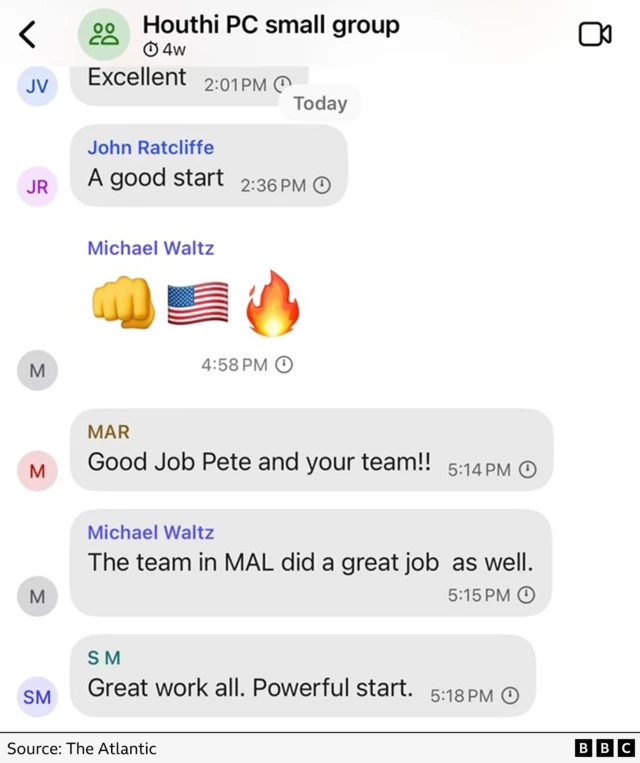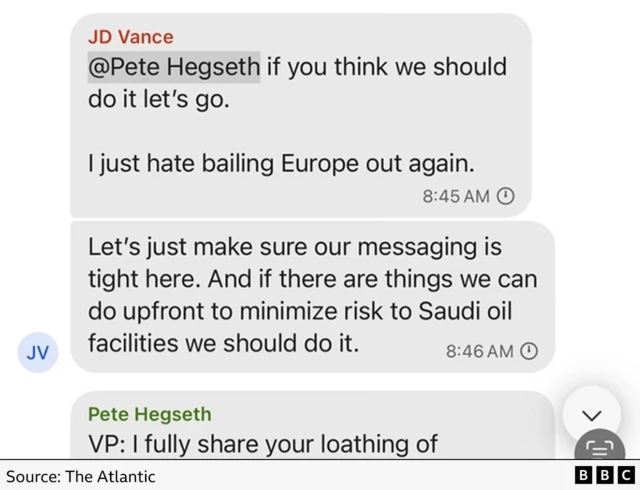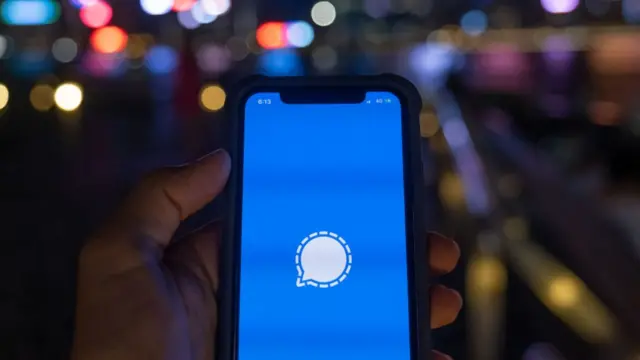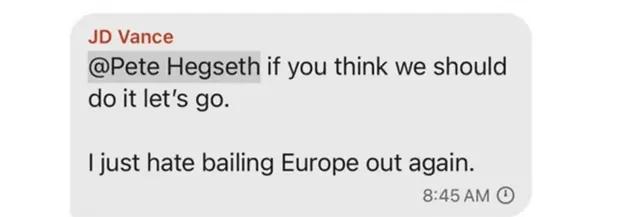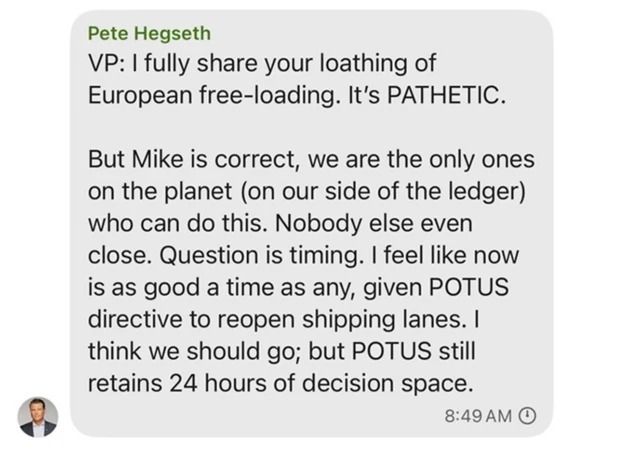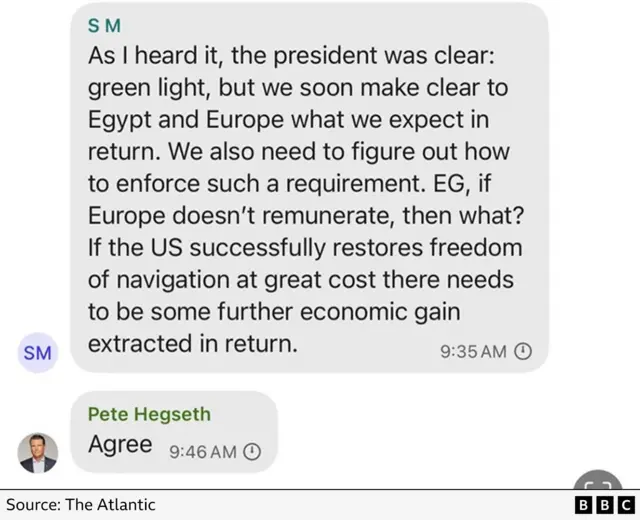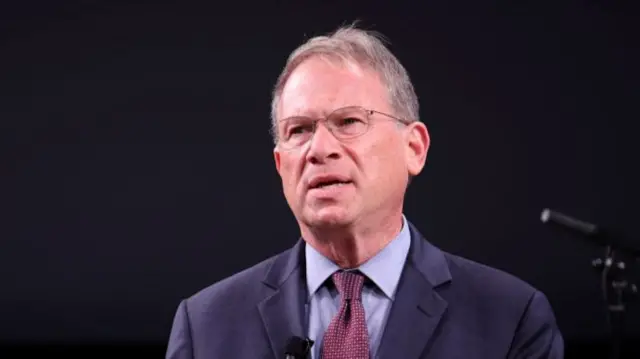Putin 'sitting very happy in Kremlin' after data breach - security expertpublished at 12:20 GMT 25 March
 Image source, Getty Images
Image source, Getty ImagesA security expert has warned that the US administration’s mis-use of messaging services like Signal could be exploited by Russia in its talks on Ukraine.
Hamish de Bretton-Gordon, an ex-army officer and security expert, tells BBC 5Live that he’s in a number of Signal groups himself, but adds that the app is typically used for administration purposes, “not for operation”.
“Most of us ditched it a few years ago because it is so easy to hack into”, he explains, before describing how data breaches could be exploited by Russia in its negotiations with the US on Ukraine.
As a result of the leak, de Bretton-Gordon suggests that Vladimir Putin will be “sitting very happy in the Kremlin at the moment”.
“When you have people like [Pete] Hesgeth and [Steve] Witkoff who apparently are not trained and have no idea about counter surveillance and espionage, it just makes life really, really easy," he adds.
